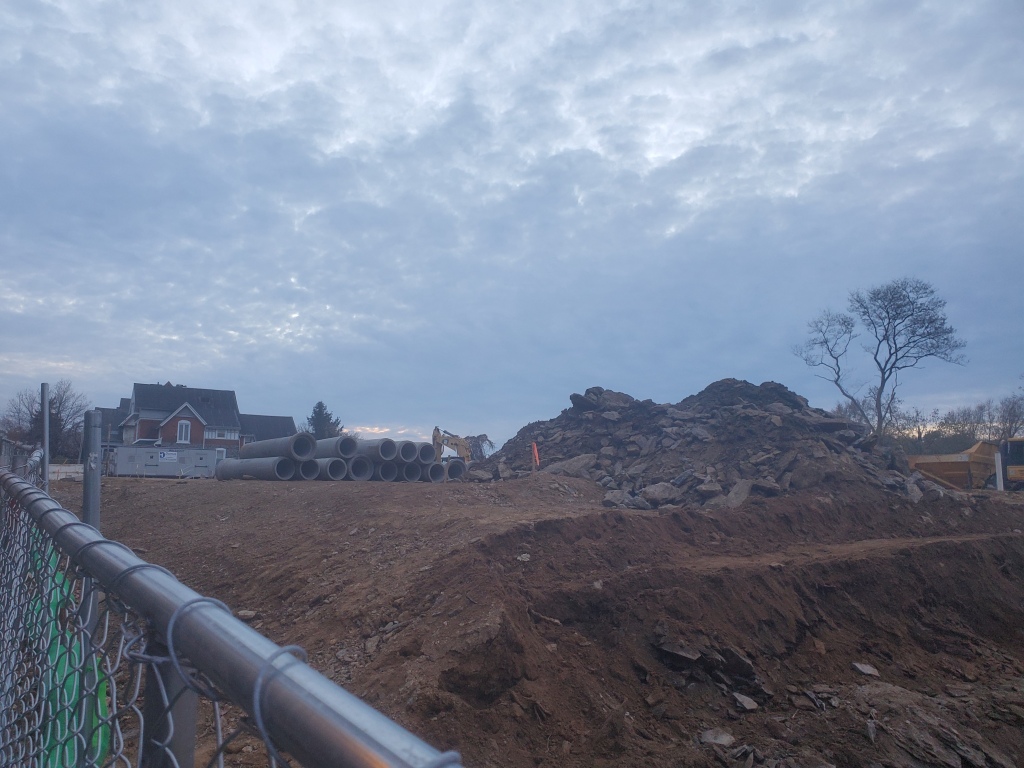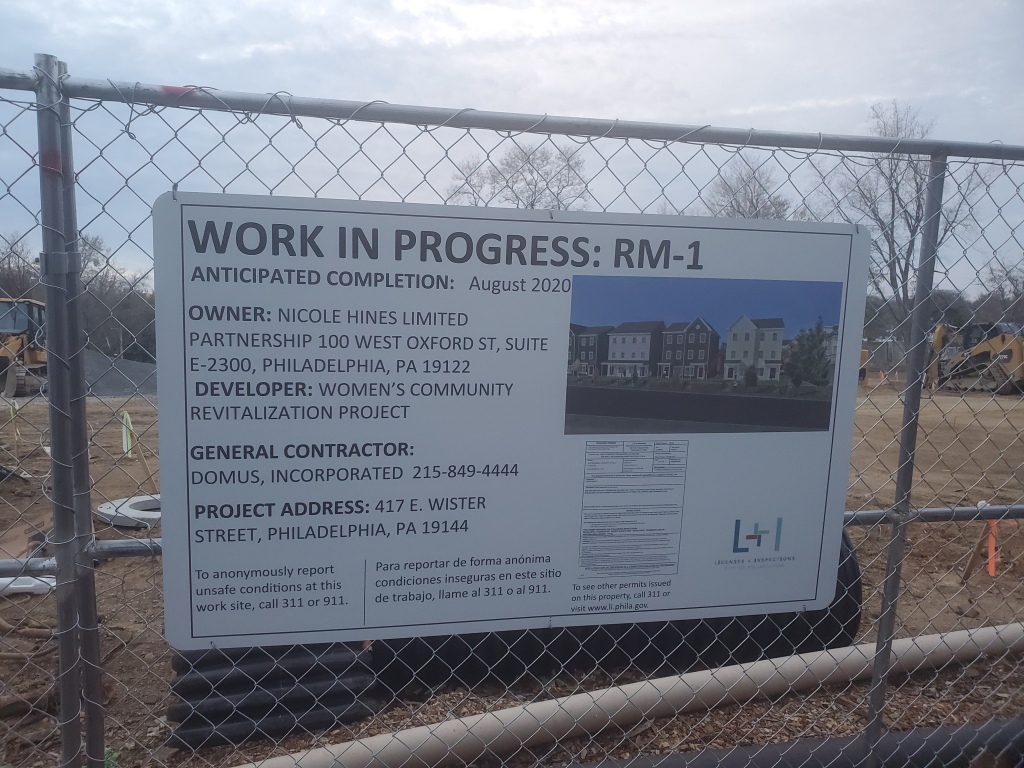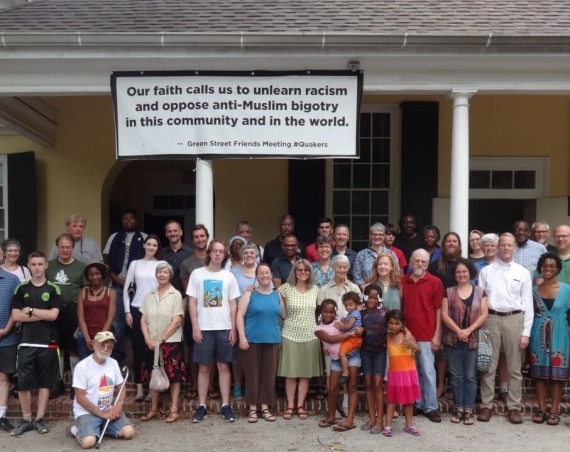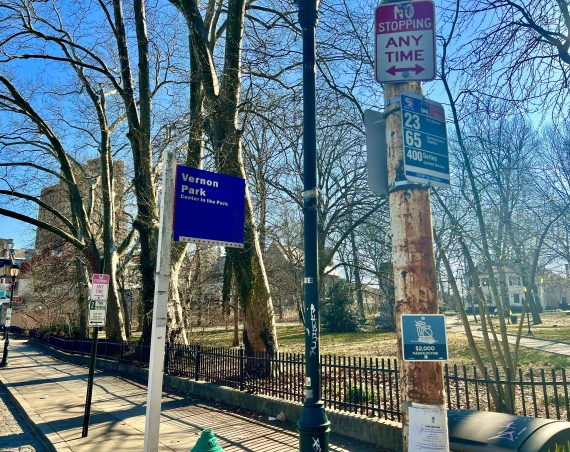
It’s expensive where Melissa Stills, a teacher and a mother to a 10-year-old son, lives.
The Germantown resident pays about $1,200 for a two-bedroom apartment — a cost that has proven too much after a relationship ended. When she heard the Community Justice Land Trust — a program of the Philadelphia-based Women’s Community Revitalization Project — was taking applications for 35 affordable rent-to-own townhomes in East Germantown (rents start at as little as $92), she was immediately interested.
Stills sees the Nicole Hines Townhomes program as a possible opportunity to buy a home in a few years. She isn’t alone.
Nora Lichtash, executive director of the Women’s Community Revitalization Project, said more than 200 people showed up to apply for a unit during a recent open session.
In a community land trust, a nonprofit group obtains and potentially develops a property, with the aim of serving neighborhood needs. Both the established WCRP and a separate land trust workgroup under the locally based Germantown Residents for Economic Alternatives Together (more commonly known as GREAT) share a goal — to take properties off the private market, then facilitate neighborhood improvement without displacement.
“I love the idea of people who live work or worship at a place controlling land in their community and having a say over what happens,” Lichtash, a Germantown resident, said.
The WCRP has a decade of experience with the model, across Philadelphia. Among the lessons it’s learned: Don’t count on the city for support.
New York City put aside $870,000 in its Fiscal Year 2020 budget for trusts aimed at developing permanently affordable housing. Lindsay Stolkey, founder of GREAT, said she’s hopeful the Philadelphia Land Bank — which took over more aspects of city property sales earlier this year, as reported by WHYY at the time — could play a part in backing such efforts.
“With the abundance of vacant land and houses, they really should be prioritizing this kind of work,” she said.
It’s not that the Women’s Community Revitalization Project has never seen city backing. In 2016, then-Mayor Michael A. Nutter announced a $1.5 million subsidy for the project’s Nicole Hines townhomes in Germantown just before leaving office, part of a $13.4 million commitment to affordable housing at eight developments. The WCRP has also seen funding for the homes through the Federal Home Loan Bank system, which by law sees its members contribute 10 percent of earnings toward affordable housing programs. Private donations play a part as well.
And late last month, the Philadelphia City Council adopted a series of reforms for its land bank that would have it consider the social impact of a proposed development before selling land off. But it wouldn’t do away with the city’s tradition of “councilmanic prerogative,” which gives a district’s councilmember final say on land use.
In recent years, Lichtash and said Stolkey both said, they haven’t seen signs of support from Philadelphia officials — in Germantown specifically, or the city overall.
Philadelphia’s tradition of councilmanic prerogative effectively gives council members power over how city-owned land is sold and distributed in their own districts — it shields neighborhoods from influence by council members from other districts, as described by Billy Penn earlier this year. Multiple emails and a phone message left in recent weeks with a staffer at Councilwoman Cindy Bass’ office to discuss land trusts and other affordable housing efforts weren’t returned.
The city’s land bank office returned a message seeking information on potential cooperation land trusts, saying the city doesn’t have a land trust, but pointing to online resources describing how it functions. It hasn’t yet returned another message seeking information on whether and how it might work with groups like GREAT or the WCRP.


Nicole Hines Townhomes
People who applied for the WCRP’s planned units in Germantown can’t make more than $40,000 a year.
“But a lot of people are just really struggling or they’re living in a house without a system and they may not have heat or electricity,” Lichtash said. “And until you get your housing in order, it’s just hard to get other things in order.”
The WCRP’s Community Justice Land Trust well-established now, one group among many in regional and national associations of land trusts. But Lichtash said it’s faced its share of pushback — including from people who struggled to understand why an applicant would want to own a home, but not the land underneath it, as the trust’s arrangement requires.
The WCRP has also faced what Lichtash, in her conversation with Germantown Info Hub, described as “not-in-my-backyard” battles — opposition from people who didn’t want to live close to affordable housing or worried about its impacts on their neighborhoods. But she said overall, Germantown has been welcoming.
Lichtash said the CJLT doesn’t build anything unless “there’s just tremendous amount of support.” In that respect, she said, Germantown’s “kind of different than almost any neighborhood (where we) ever worked.”
In Germantown, the units should be completed around August. They’ll first be leased to low-income tenants, who will eventually have an option to buy. The trust will continue to own the land, to protect its mission of keeping it affordable forever.
Stills said she was put off by what felt, to her, like an elaborate application process. “They were kind of rigid in what they wanted from their applicants,” she said. But she also understood the program has to know applicants are good fits.
Lichtash said people won’t be turned away for bad credit, but the program needs to know applicants can keep up with their utility bills. A criminal history isn’t a deal-breaker, if an applicant has a recent clean record. Home visits are “just to kind of see who needs it the most,” she said.
Just Getting Started
GREAT doesn’t yet have a land trust. There’s no development GREAT has planned — in fact, Stolkey said, it’s more likely to focus on rehabilitating existing structures than building new ones. It doesn’t yet have a funding source.
It does, however, have a group of dedicated volunteers who are beginning to coalesce around a vision.
“(A) community land trust will serve the Germantown community well by protecting the living space for those who stayed in place and preserved Germantown when it was going through its ups and downs, and mainly its down turn,” GREAT member Cathy Brown said in an email sent to Germantown Info Hub.
Two years ago, Stolkey invited residents to watch a documentary on land trusts. Stolkey and collaborators ultimately turned their attention to identifying a variety of community needs — and through that process, GREAT took shape. It hosts a study group and swap events (think a pop-up market, but no one pays), and puts a particular emphasis on shared resources and cooperative ownership. It got its 501c(3) designation in December of 2018.
This year, the land trust idea began to pick up steam, and GREAT formed a working group to explore financing and logistics.
GREAT doesn’t have the established history lenders and grantors want, a chicken-and-egg problem its members are discussing. And Stolkey said GREAT doesn’t envision itself as a housing agency or provider, or a social service agency, or a charity — community connections and collaboration are its priorities.
Stolkey is cautious not to speak for all of GREAT’s members. But she said she’s attracted to the idea of renovating and offering properties that offer some degree of community living — shared spaces like play areas for children, or gardens that encourage neighbors on a property to build communities of their own. Brown said she envisions a place “where intergenerational living and learning is recreated and valued. A place where people can live without the fear of being out-priced of their homes. A place to teach neighbors stewardship of their community and its assets.”
Too often, Stolkey said, even community land trusts put aside the interests of and engagement with the community.
“One of our core values addresses that: There’s not a distinction between the ‘organization’ and the people benefiting,” Stolkey said.
For now, GREAT is loosely eyeing up one on-the-market Germantown property. It’s continuing its research — which has included dialog with more experienced groups operating in the land trust space, including the WCRP and the also Philadelphia-based Life Center Association
“There are so many people here that care about their neighbors and their community,” Stolkey said. “People also are looking for something they can do about what’s happening around them. So our approach offers one way. It’s fairly holistic, and we hope, empowering … that people here who care and who can, can come together and take action, be creators.”



